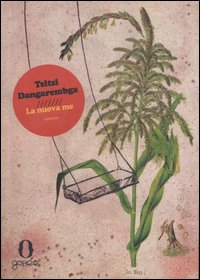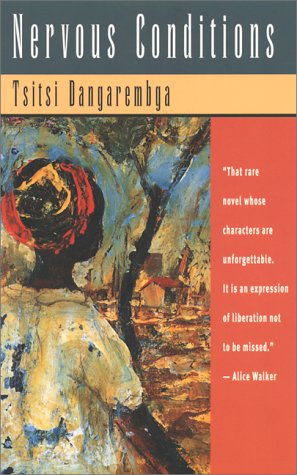La nuova me - Zimbawe
| |||||||||||||||||
|
Editeur - Casa editrice |
Gorèe |
Africa
|
|||||||||||||||
|
Anno - Date de Parution |
2007 | ||||||||||||||||
|
Pagine - Pages | 274 | ||||||||||||||||
|
Titolo originale | Nervous Conditions | ||||||||||||||||
|
Lingua originale | |||||||||||||||||
|
Lingua - language - langue | italiano | ||||||||||||||||
|
Edizione - Collana |
Diritti & Rovesci | ||||||||||||||||
|
Traduttore |
Di Vittorio C. | ||||||||||||||||
|
|
|||||||||||||||||
|
|
|
Romanzo al femminile, La nuova me è la storia di una giovane ragazza Shona (Zimbabwe) e della sua volontà di trovare il suo posto nel mondo. È la storia del percorso che la porterà a combattere per ricevere un’istruzione adeguata, per essere rispettata in quanto donna e per essere fiera del suo essere nera. Un libro allo stesso tempo leggero e profondo, raccontato in prima persona dalla fresca voce di Tambu, la giovane protagonista capace di incantare il lettore immergendolo nei riti e nelle tradizioni Shona, ma anche di stimolare in lui una riflessione sulle varie sfaccettature che compongono la condizione di donna – una giovane donna nera che ha deciso di combattere per la propria dignità in prima persona, senza rinnegare le proprie origini, la propria cultura, la propria identità. A proposito di La nuova me Doris lessing ha scritto: "Molti bei romanzi scritti da uomini sono venuti fuori dall’Africa, ma pochi scritti da donne nere. Questo è il romanzo che aspettavamo… diventerà un classico". E tale è diventato, tanto da essere inserito fra i dodici più importanti libri africani del XX secolo e d’aver venduto oltre 3.000.000 di copie in tutto il Mondo. Con La nuova me Tsitsi Dangarembga ha vinto il Commonwealth Writers’ Prize nel 1989
Recensione in altra lingua (Français): |
| Nervous Conditions, written by Tsitsi Dangarembga in 1989, is a semi-autobiographical coming of age story about a young woman in modern Africa. The story takes place in Rhodesia in the late 1960s and early 1970s. The story centers around Tambu and Nyasha, female cousins who, until their early teens, lead very different lives. | |||||||||||||
| Biografia | |||||||||||||||||
|
Nata in Rhodesia (ora Zimbabwe) nel 1959, Tzitzi Dangarembga ha iniziato i suoi studi in Inghilterra, dove era emigrata con la famiglia. Tornata nel suo paese, vi ha concluso gli studi superiori per poi laurearsi alla Cambridge University in medicina. E’ poi ritornata definitivamente nel suo paese, dove si è laureata in psicologia. Nel suo paese ha fatto parte di una compagnia teatrale universitaria e nel 1983 ha diretto una commedia dal titolo The Lost of the Soil ed è divenuta una dei componenti più attivi del gruppo teatrale Zambuko, diretto da Robert McLaren ed ha partecipato alla produzione di due opere intitolate Katshaa! e Mavambo. In questo periodo ha anche iniziato la sua attività di scrittrice, pubblicando nel 1985 in Svezia una raccolta di racconti dal titolo The letter. Nel 1987 ha invece debuttato con un testo teatrale, She no longer weeps scritto nella sua lingua madre. Questo lavoro le procurò un enorme successo e la sua notorietà era già internazionale quando nel 1989 pubblicò il suo primo romanzo Nervous conditions (L’altra me) con il quale vinse la sezione africana del Commonwealth Writers Prize. Successivamente ha svolto studi da regista in Germania presso la Deutsche Film und Fernseh Akademie. In quel periodo ha prodotto numerosi film e documentari per la televisione tedesca e ultimamente è stata autrice e regista di Everyone's Child con il quale ha preso parte a numerosi festival internazionali e che è stato premiato al Dublin Film Festival. | |||||||||||||||||
| |||||||||||||||||





 La nuova me - Zimbawe
La nuova me - Zimbawe
